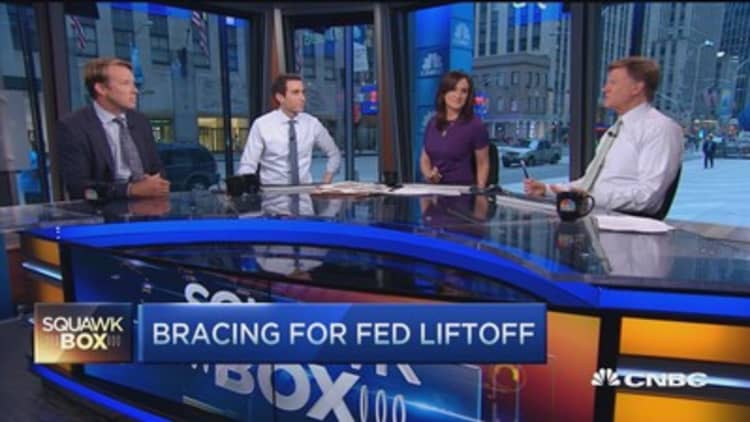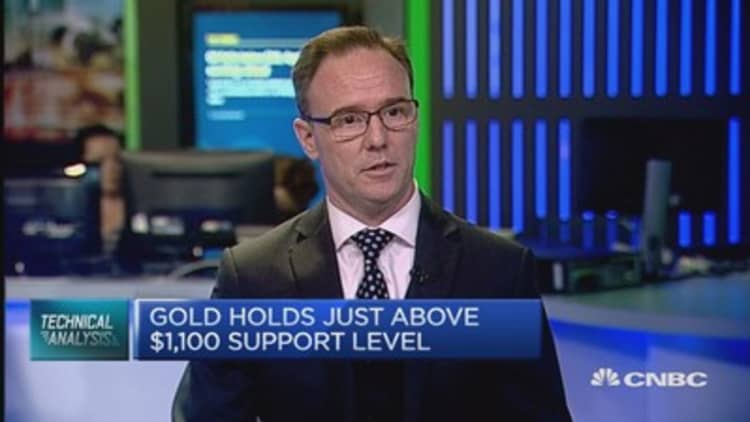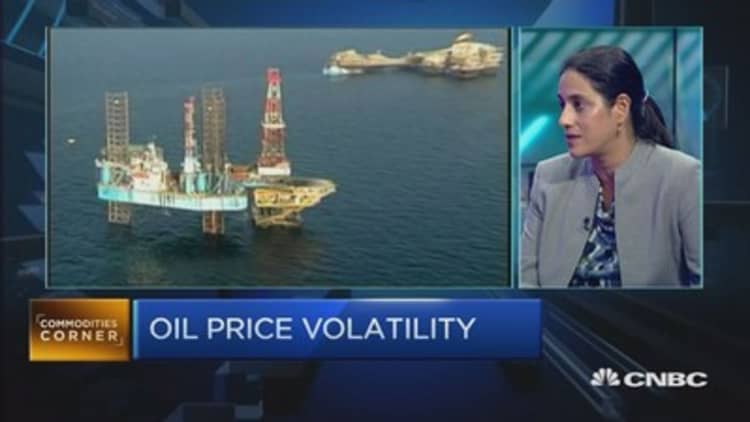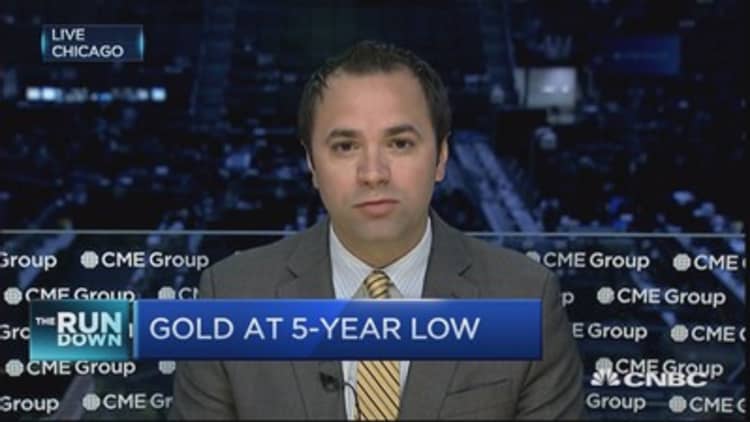


A broad selloff in commodities and dollar strength point to disinflationary pressures on the horizon that weaken the argument for a near-term rise in U.S. interest rates, according to some analysts.
This week has seen gold prices tumble to five-year lows and U.S. oil prices dip below $50 a barrel for the first time since April, with prices stabilizing a little on Tuesday.
"Given that weak commodity prices are likely to prompt a ripple out disinflationary effect it is hard to see how the Fed (U.S. Federal Reserve) would even consider hiking rates against such a weak backdrop, something markets don't appear to be considering at the moment," Michael Hewson, chief market analyst at CMC Markets UK, said in a note on Tuesday.
Read MoreCommodity currencies: Who's the ugliest of them all?
The Fed is expected to hold off on raising interest rates until prices start to pick up. Data released last week showed the U.S. Consumer Price Index (CPI) rose 0.3 percent in June after a 0.4 percent rise in May, pushing the year-on-year CPI rate into positive territory for the first time since December.
But declining commodity prices could see these price pressures fade, analysts said. The Thomson Reuters Core Commodity CRB Index, which tracks 19 commodities, is down almost 8 percent so far this year and nearly 30 percent from where it stood a year ago.
Circular argument?
Commodity prices in general have been hurt by weak demand and a rise in the U.S. dollar. Most commodities are priced in dollars, so a rise in the currency makes oil and gold more expensive for holders of other currencies.
The dollar hit its highest level in three months against a basket of other major currencies on Tuesday amid expectations for a rise in U.S. interest rates from near-zero levels in the coming months.
"It's all a circular argument, the dollar goes higher and that weakens growth and gives the Fed more time. But then growth slows down and the dollar goes down," Jonathan Mackay, senior market strategist at Morgan Stanley Wealth Management, said on CNBC's "Squawk Box" on Tuesday, discussing the impact of the commodities selloff on the U.S. rate outlook.
Talk about a rise in interest rates at the Fed's September meeting has been fueled by hawkish comments from Fed officials. Fed Chair Janet Yellen said last week that rates were likely to rise this year depending on data, while St. Louis Fed President James Bullard said on Monday that there was a better-than 50 percent chance of rate rise in September.
"Interest rates eventually have to go up, but people that think rates are going up in September are flat out wrong," Mark Sebastian, founder of OptionPit.Com, told CNBC on Monday. "The only reason for the Fed to raise rates in September is that they said they would do it."
Hold on
Other analysts said there was another way to look at the selloff in commodity prices. The fall in oil, for instance, puts more money back in the pockets of consumers and businesses, which helps boost growth and reflate the economy longer-term, they argued.
Read More Oil rebound? These banks think so
U.S. oil prices, which have tumbled some 47 percent in the past year, were hovering around $50 a barrel on Tuesday.

"What the Fed is looking at is inflation expectations and you could argue that the fall in commodity prices boosts inflation long-term as it helps boost economic activity," said Julian Jessop, chief global economist at Capital Economics in London.
"The bigger picture is that the economy is recovering, the labor market is strengthening and interest rates are at emergency lows that are no longer necessary, so you will need a disruptive fall in oil prices to change the picture," Jessop said.
Brent Schutte, market strategist at BMO Capital Markets, added that the selloff in commodities was a positive for the economy.
"We should get consumer feedback in the coming quarters from lower oil prices as people see them as more permanent," he said on Tuesday's "Squawk Box."


